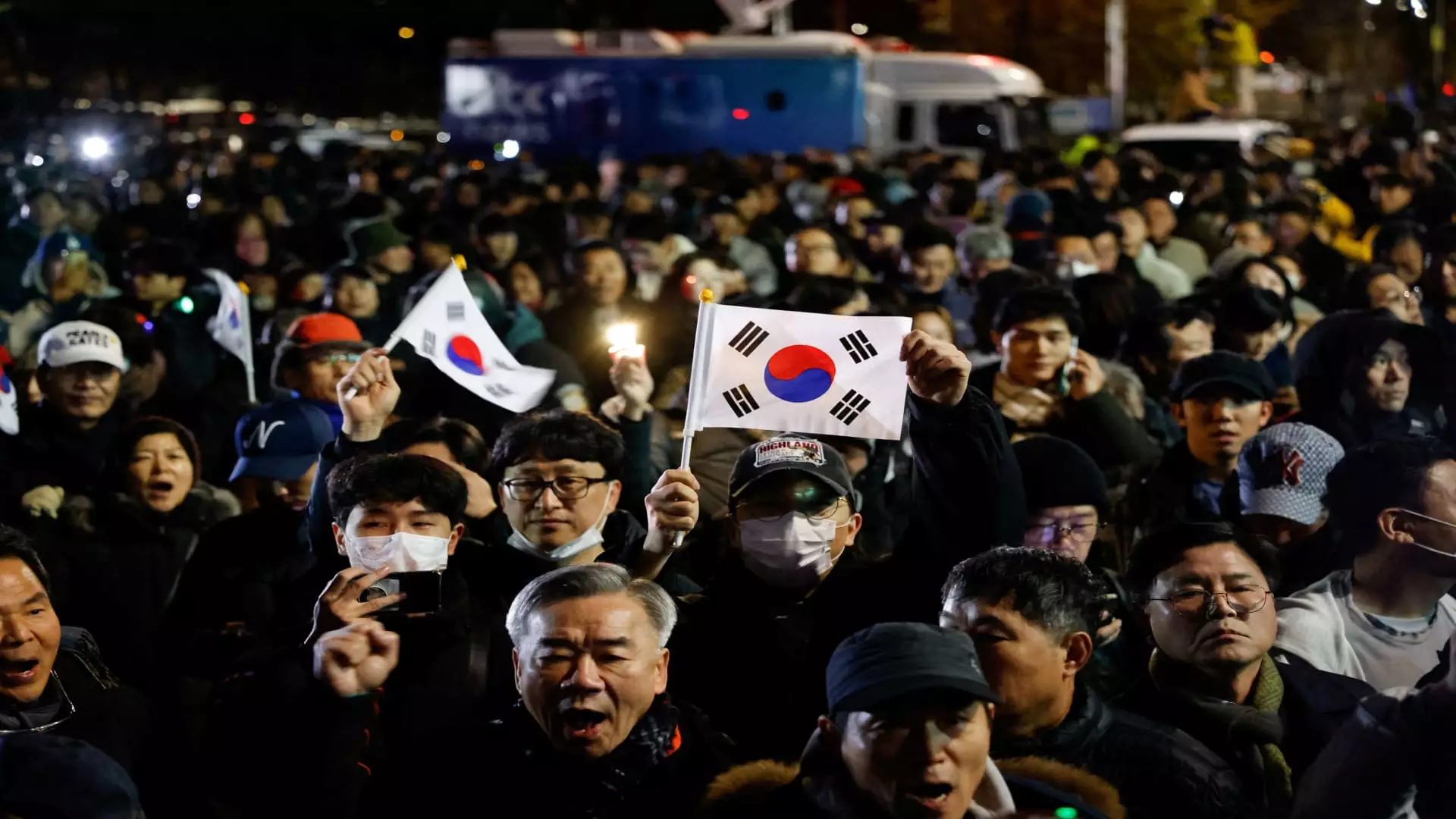The political landscape of South Korea is currently marred by instability and uncertainty, following serious allegations against President Yoon Suk Yeol as his administration attempts to navigate through a scandal involving a failed declaration of martial law. This incident has brought about significant implications for both the governmental structure and the country’s standing on the global stage, raising questions about governance, legality, and the future of political power in South Korea.
Yoon’s attempt to impose martial law has resulted in chaotic repercussions. Initially, he issued military orders on December 3, aimed at quelling what he referred to as “anti-state forces” and dealing with political dissent. However, after swift opposition from the parliament, who collectively voted against the decree, he rescinded the order merely six hours later. The backlash was immediate, prompting both a public outcry and internal dissent within the military. High-ranking officials, including the acting defense minister, publicly stated their refusal to comply with any further martial law directives, indicating a significant fracture in the military’s loyalty to the president.
The aftermath of this incident underscores a major governance issue in South Korea. By attempting to exert control in such an authoritarian manner, Yoon inadvertently invited scrutiny from various sectors, including the opposition parties, which was quick to seize the opportunity to challenge his authority. The Democratic Party, in particular, has called for his removal from military command and has pushed for legal accountability for Yoon and those involved in the martial law debacle.
The legal ramifications of Yoon’s actions are becoming increasingly severe. Reports indicate that he is now under criminal investigation for alleged treason, a point that could shift political support away from him. Oh Dong-woon, head of the Corruption Investigation Office for High-ranking Officials, confirmed a travel ban for Yoon—an action that symbolizes a direct constraint on his power. Furthermore, Yoon’s ruling party, the People Power Party (PPP), has initiated a task force to prepare for his possible resignation, raising questions about the party’s confidence in his ability to govern.
In the meantime, Yoon’s administration is treading carefully amidst a turbulent political tableau. The leader’s refusal to resign in light of mounting pressure—from both his constituents and political peers—has sparked criticism that he is unfit to continue as president. Although he survived an impeachment vote, his decision to delegate authority to Prime Minister Han Duck-soo has raised concerns about constitutional legality. The legitimacy of such a delegation is contested, especially since the South Korean prime minister is not an elected official in the same way as the U.S. vice president.
As this political crisis unfolds, economic ramifications are beginning to surface. South Korea, regarded as the fourth-largest economy in Asia and a crucial supplier of memory chips globally, finds itself at risk of irreparable damage due to the ongoing political turmoil. Opposition leader Lee Jae-myung has warned that the economy could face significant harm, emphasizing that political instability undermines investor confidence and market stability.
In response, the South Korean finance ministry is reportedly working diligently to stabilize financial markets, preparing to implement contingency plans aimed at safeguarding liquidity in the economy. Such proactive measures indicate an understanding within the government of the severe risks posed not only to political stability but also to the economic landscape that could result from prolonged unrest.
The turbulence engulfing South Korea occurs against a complicated geopolitical backdrop. As North Korea allegedly strengthens military ties with Russia, the potential for escalated tensions in the region poses further complications for Yoon’s administration. U.S. officials, including Secretary of Defense Lloyd Austin, have expressed concerns about the implications of South Korea’s internal challenges, alluding to the necessity for the democratic process to prevail, particularly in a nation that hosts thousands of U.S. troops.
Yoon’s leadership during this critical period remains a point of contention. With mounting calls for accountability and significant strides made by opposition parties, the stability of his presidency is increasingly questionable. If Yoon does not navigate this crisis adeptly, not only could he face legal consequences, but he might also sacrifice the trust of the populace and the stability of the nation itself.
South Korea finds itself at a pivotal crossroads under Yoon Suk Yeol’s presidency. The unfolding political drama reveals underlying vulnerabilities inherent in governance and its consequences for national security, legal integrity, and economic stability. Addressing these complexities swiftly and effectively will be paramount in reestablishing public confidence and restoring order in South Korea’s governance structure.


Leave a Reply